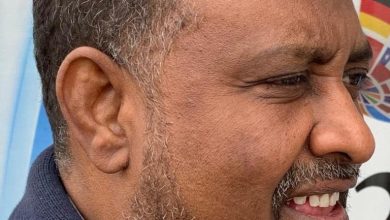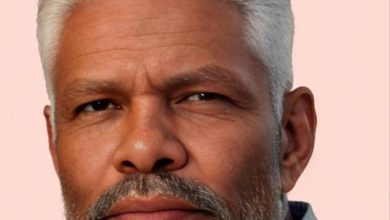O People of Darfur, how long will this discord last among you? How long?! (3-3)

Hashim Al-Imam Muhyiddin
Nearly sixty years ago, the British peacefully left Sudan—they neither shed blood nor destroyed homes. In the first two years following independence, two presidents led Sudan, both hailing from western Sudan: Ismail Al-Azhari from Al-Ubayyid and Abdullah Khalil from Umm Kadada. This marked the beginning of what some refer to as the “State of ’56,” which they blame—along with the so-called Jallaba (northern elites)—for every misfortune that has befallen them, even natural disasters.
This newly independent state began with the Sudanization of public offices, which sparked controversy and accusations of bias toward northerners. However, Dr. Mudawi Al-Turabi, a political analyst and a member of the Central Committee of the Democratic Unionist Party, stated in a televised interview that he had asked the head of the Sudanization committee about the alleged bias. The response was that the committee was not political but purely professional. They advertised each vacancy and appointed the most qualified individuals, most of whom happened to be northerners simply because they had higher levels of education at the time.
There was no concept of affirmative action back then to favor minorities with fewer qualifications, as seen today in countries like the U.S., which introduced such measures to compensate for historical injustices against African Americans and to enhance their professional competencies. It is a modern civilizational approach, but it was not a norm during Sudan’s early years of independence.
In northern regions, schools were built through self-initiative by the people, unlike other regions where locals waited for government support, which was slow due to social and economic constraints. Meanwhile, people in Darfur were preoccupied with tribal conflicts and pastoral life, leaving little room for education.
Abdullah Khalil voluntarily handed power to the generals in 1958, with no consideration of tribalism or regionalism, as some intellectuals from Darfur might suggest today. He acted according to his party’s (Umma Party) decision and entrusted the highest-ranking military officer with authority, irrespective of his tribal or geographic origins.
What Sudanese political parties call “military coups” are, in fact, not coups from the perspective of political scholars. The accusation that the military institution orchestrated these takeovers is unfounded. For instance, General Abboud did not stage a coup in 1958; the ruling party willingly handed him power. The same can be said about the regimes of Nimeiri and Al-Bashir—both were ideological projects executed by political cadres within the army, not the military institution itself. Nimeiri came to power with the support of communist, Arab nationalist, and Nasserist factions, while Bashir ascended on the shoulders of the National Islamic Front. Ideologies, unlike tribal affiliations, transcend geography and ethnicity, encompassing people from diverse backgrounds across all regions.
Therefore, these three military regimes—spanning 52 years—cannot be labeled as Jallaba rule. The rulers did not seize power to serve the northern elite. Moreover, democratic governments that briefly ruled during elections came to power with significant support from the people of Darfur. How, then, can one claim that the Jallaba oppressed the people of Darfur during the so-called “State of ’56”? The leaders of these regimes either pursued ideological goals or rose from the ranks of major political parties, including the Umma Party, which is deeply rooted in Darfur. The Jallaba have no stake in these outcomes.
What perplexes many is the hostility of the Rapid Support Forces (RSF) toward the former regime and the Islamic movement, despite both having paved the way for the RSF’s inclusion within the Sudanese military. It is ironic that the RSF labels former regime supporters as “remnants” (Fouloul) and vows to eradicate them completely. Even more puzzling is how leftist groups—who now support the RSF and run its media campaigns—accuse the Islamists of having created and armed the RSF to ignite conflict and regain power. Some young journalists from the Umma Party echo these claims, yet if anyone mentions that Sadiq Al-Mahdi armed Arab tribes in Darfur, they lash out angrily. This contradictory political discourse in Sudan is confusing, perhaps intentionally so.
It is worth noting that Darfur was one of the regions that benefited most from the Al-Ingaz (Salvation) regime, a fact that cannot be denied except by the ungrateful. Through the federal system introduced by the regime, each state gained its own government, complete with local ministers and governors. Darfur itself was divided into multiple states to reduce administrative burdens. Major infrastructure projects were undertaken throughout the country, particularly in Darfur, in sectors such as economy, industry, energy, oil, electricity, telecommunications, roads, bridges, education, and healthcare.
In Darfur, the airports in Al-Fashir, Nyala, and Al-Geneina were expanded with new runways and terminals to meet the needs of travelers and UN missions. Smaller airports were also established in Ed Daein and Zalingei. Roads were built to connect key cities like Al-Fashir, Nyala, Zalingei, and Al-Geneina, with bridges constructed over rivers and national highways. Additionally, significant achievements were made in electricity generation, including solar energy projects in major cities, as well as in healthcare, with new hospitals, clinics, and health insurance centers. The regime also established Zalingei and Nyala Universities.
The greatest grievance Darfur holds against the Al-Ingaz regime is the war that began in 2003, which claimed many lives and displaced countless families, forcing them to rely on international aid for food and medicine. War is tragic in all forms, regardless of the justifications offered by the state, as the government’s primary duty is to protect its citizens, not attack them—even if they rise against it or disrupt order.
It is my hope that the government will invite all parties in conflict to engage in dialogue and find common ground after distinguishing between those who are sincere and those who are treacherous.
One of Al-Ingaz’s most significant achievements was integrating educated individuals from poor and middle-class backgrounds into both the federal and central governments, breaking the monopoly that the elite once held.
In conclusion, I extend my greetings to the Sudan Liberation Movement and Justice and Equality Movement for their patriotic stance in placing the nation’s interests above all else, rising above the wounds of the past.



